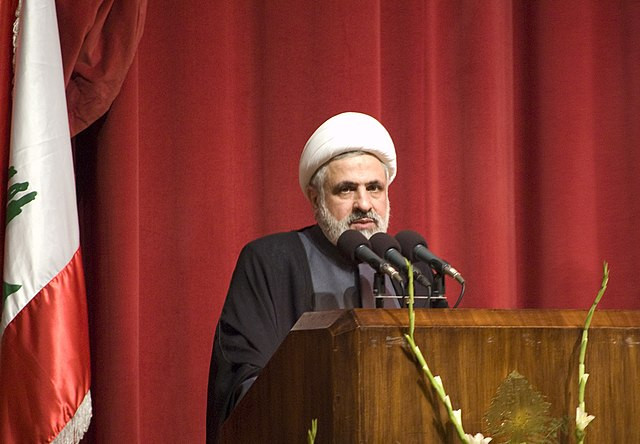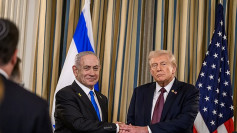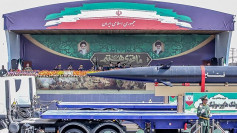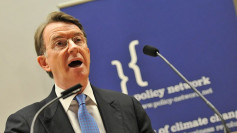Hezbollah's acting leader, Naim Kassem, vowed on Monday to continue the group's resistance against Israel, despite the loss of much of its senior leadership, including its Secretary-General Hassan Nasrallah. Kassem's statement marked the first public appearance by a senior Hezbollah figure since the Israeli airstrike that killed Nasrallah and several top commanders last Friday.
"Israel was not able to affect our [military] capabilities," Kassem declared in a televised statement. "The commanders killed have already been replaced, and our forces are prepared for a long battle." His comments came amid ongoing Israeli strikes that have targeted thousands of Hezbollah-linked sites across Lebanon. These strikes have killed over 1,000 people in the last two weeks, according to Lebanon's Health Ministry, nearly a quarter of whom were women and children.
Kassem, a founding member of Hezbollah and Nasrallah's longtime deputy, emphasized the group's readiness for an Israeli ground invasion. "If the Israelis decide to enter by land, the resistance forces are ready," he said, adding that Hezbollah has long anticipated a protracted conflict and is fully prepared to engage in ground combat. Despite the recent losses, including top commanders such as Nabil Kaouk and Ali Karaki, Kassem insisted that Hezbollah's capabilities remain intact.
Hezbollah has ramped up its attacks on northern Israel, launching hundreds of rockets daily. However, most have been intercepted by Israel's defense systems or have fallen in unpopulated areas. While several Israelis have been wounded, no fatalities have been reported since two Israeli soldiers were killed near the border on September 19.
In response to Hezbollah's rocket fire, Israel has carried out targeted strikes on Hezbollah strongholds, particularly in southern Beirut. Monday's airstrike on central Beirut, a rare move for Israel, killed three Palestinian militants from the Popular Front for the Liberation of Palestine (PFLP). The strike sent a clear message that Israel's military operations are not limited to Hezbollah's known territories. This expansion of the conflict into central Beirut suggests that the unspoken rules of engagement in the region may be shifting.
The intensity of Israeli strikes has raised questions about Hezbollah's ability to respond. While Kassem projected confidence, some analysts believe the group may be conserving its resources for a potential ground invasion by Israeli forces. There are also concerns that Hezbollah's leadership may be in disarray following the loss of several high-ranking officials, including Nasrallah, whose assassination was seen as a significant blow to the organization's operational capacity.
Israeli Defense Minister Yoav Gallant hinted at the possibility of a ground invasion during a meeting with Israeli troops on Monday, stating that Israel would "use all the capabilities we have." Israel has continued to escalate its airstrikes, targeting key Hezbollah infrastructure, including missile sites and command centers.
In addition to targeting Hezbollah, Israeli airstrikes have killed several high-ranking Hamas officials operating in Lebanon. On Monday, Hamas confirmed that its top commander in Lebanon, Fatah Sharif, was killed in an airstrike on the Al-Buss refugee camp in Tyre. The Israeli military later confirmed the strike. Hezbollah and Hamas, both backed by Iran, have been coordinating attacks on Israel since the war began in Gaza on October 7, when Hamas launched a surprise assault into Israeli territory.
The escalation in Lebanon has led to a humanitarian crisis, with the Lebanese government estimating that up to one million people have been displaced by the conflict. The United Nations places the figure closer to 200,000, but the continued airstrikes have driven many civilians to seek refuge outside of their homes, and relief agencies are struggling to provide adequate support.
In Israel, tens of thousands of residents near the northern border have also been evacuated as the threat from Hezbollah rockets and ground attacks looms. Israel has vowed to continue military operations until the attacks on its territory cease, with Prime Minister Benjamin Netanyahu stating that Israel will not stop fighting until all displaced citizens can safely return to their homes.
International calls for a cease-fire have been growing, with the United States and its allies urging both sides to step back from further escalation. French Foreign Minister Jean-Noël Barrot met with Lebanese Prime Minister Najib Mikati on Monday, reiterating France's support for an immediate cease-fire and the deployment of Lebanese troops to the southern border. Mikati, echoing these sentiments, reaffirmed Lebanon's commitment to fulfilling the terms of the United Nations Security Council resolution that ended the 2006 war but has remained only partially implemented.
Despite the international pressure, Israel shows no sign of backing down. The death of Nasrallah, a significant military achievement for Israel, has been celebrated by some within the country. Videos circulated of spontaneous celebrations in bars and public spaces after Nasrallah's death was confirmed. Meanwhile, Israeli news anchors and commentators openly cheered the assassination, with some even offering celebratory toasts on air.
White House National Security spokesman John Kirby acknowledged the impact of the Israeli strikes on Hezbollah, stating that Israel had "wiped out" much of the group's command structure. However, Kirby warned that Hezbollah would likely work quickly to rebuild. "We're watching to see what they do to try to fill this leadership vacuum. It's going to be tough," Kirby told CNN's State of the Union.






